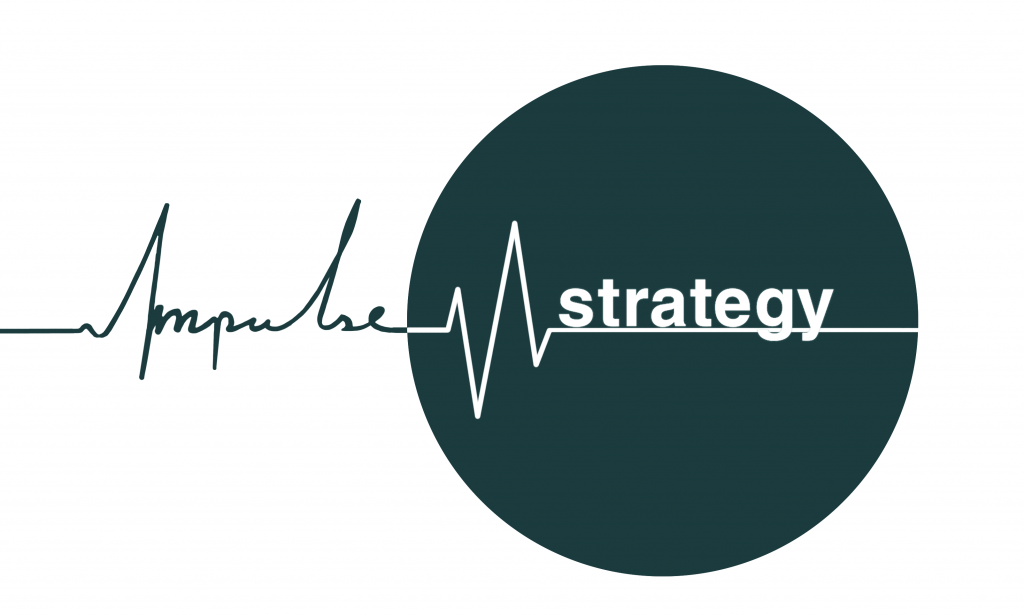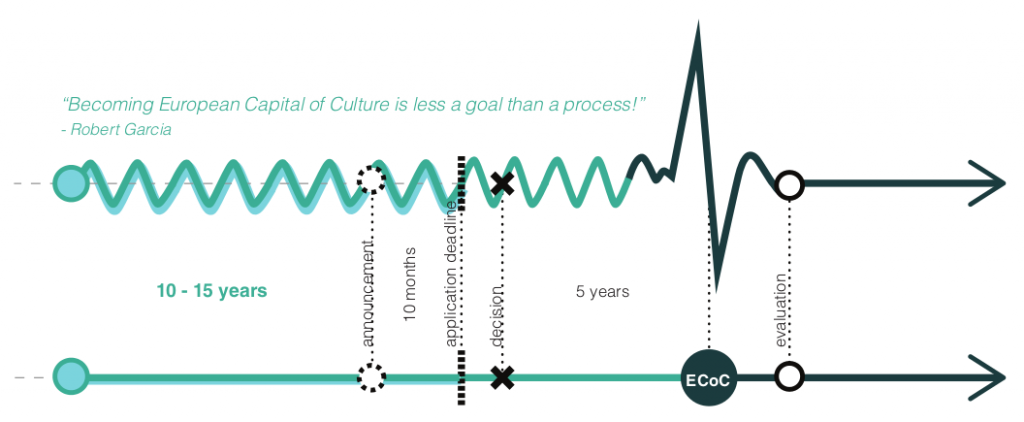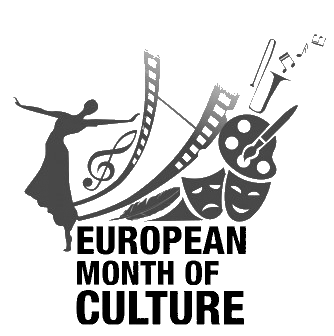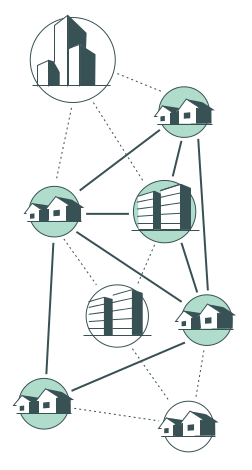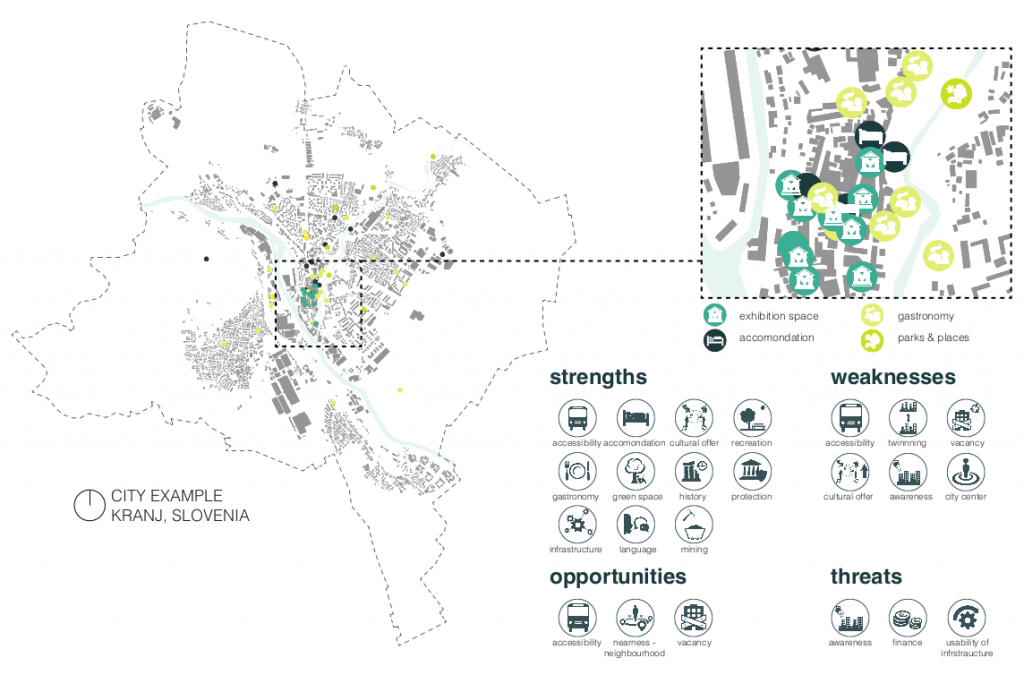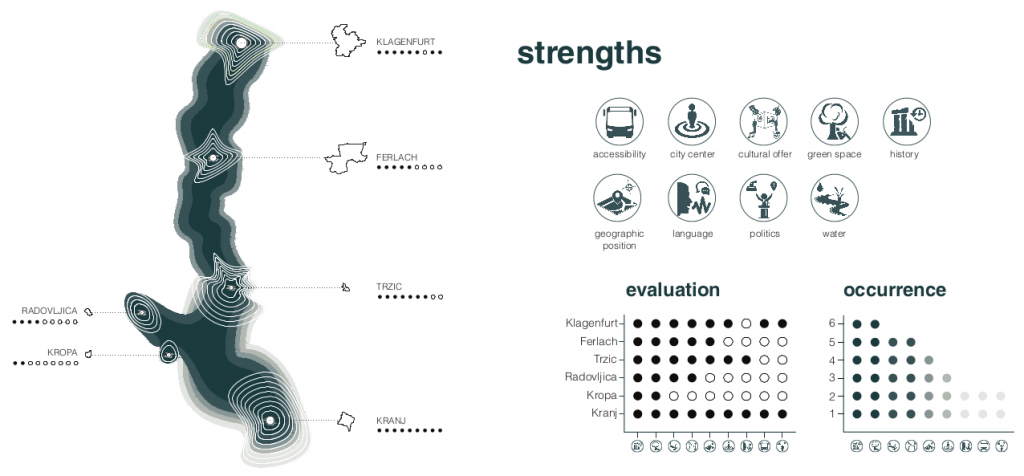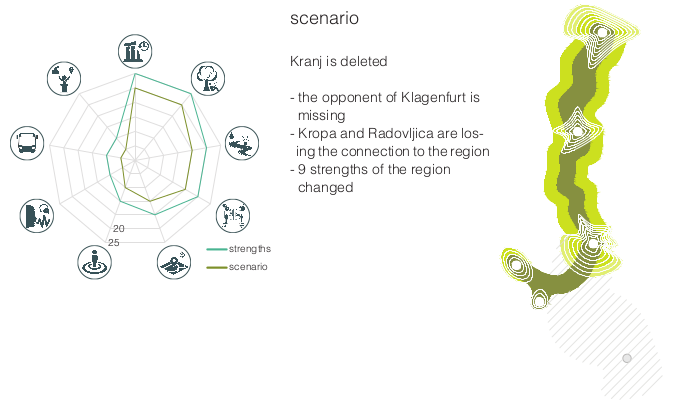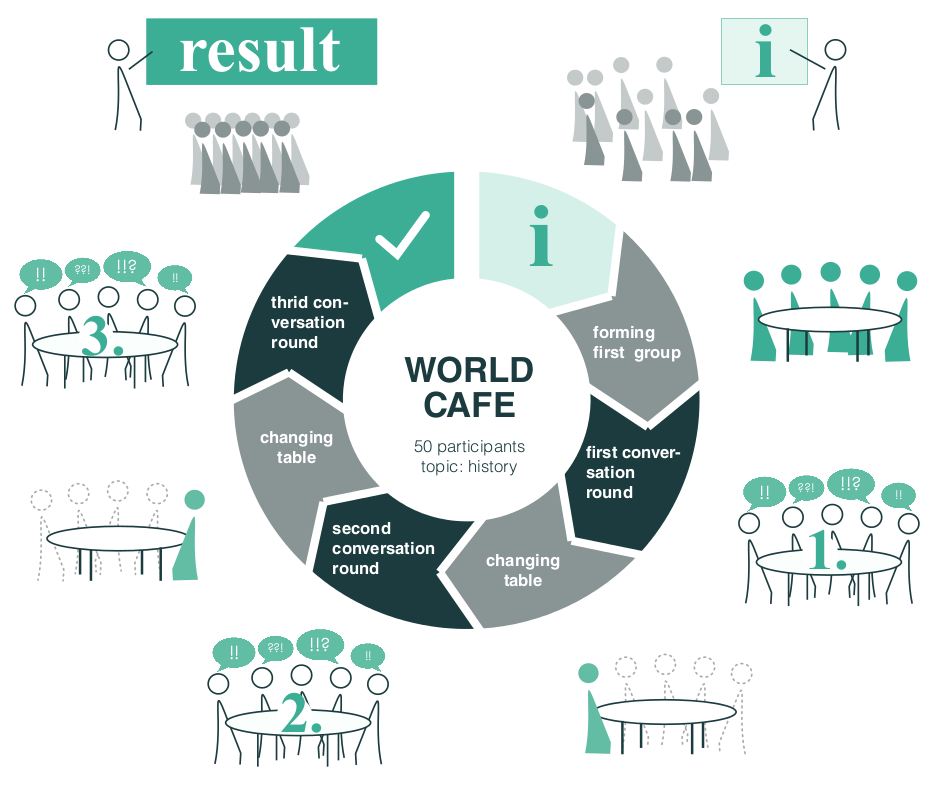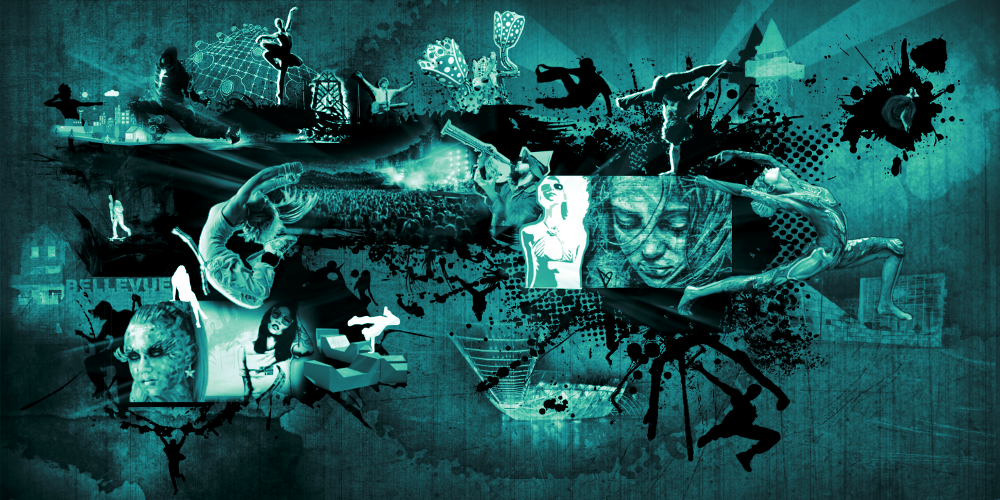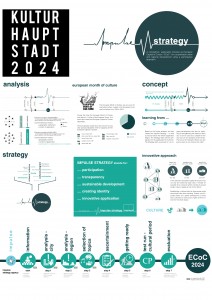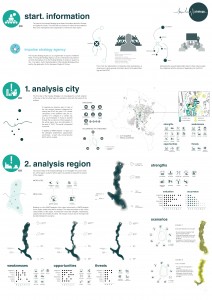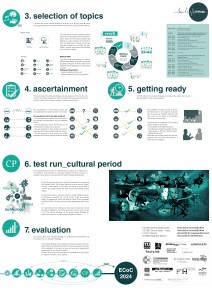The Impulse Strategy is a competitive application process for the European Capital of Culture – ECoC – for sustainable development in urban and regional areas while also using a participatory approach.
..
Approach
The Impulse Strategy doesn’t refer to a place, but to a time. More strictly spoken it’s about the time before the official application for the European Capital of Culture. A process for an ongoing development and for finding or strengthening the identity of cities or regions will be started. So the whole process functions as a catalyst and can be repeated several times. Finally the honor of hosting the ECoC can be seen as „the icing on the cake“.
.
Analysis
Because of Decision No 445/2014/EU of the European Parliament and the European Council the preparation time will become even more important for applicants in the period from 2020 to 2033. This is especially because – in comparison with former Decisions – the application content, a participatory approach and the sustainability of projects will become more important and geographic settlement will be less relevant.
There are also changes in the structure of the Jury. Based on the new Decision the Jury consists of only 2 national members (see graphics). This might help to have a more objective and fair competition between cities of various size and political influence.
The European Month of Culture was an event for promoting culture created in the European Union and took place from 1992 to 2004.
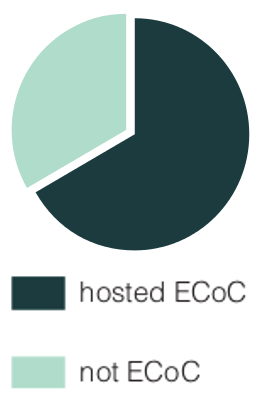 During this time the European Month of Culture took place in 11 different cities. 9 of them were part of the European Union, 6 of them also hosted the European Capital of Culture afterwards. So the European Month of Culture clearly shows the need for a long and special preparation time.
During this time the European Month of Culture took place in 11 different cities. 9 of them were part of the European Union, 6 of them also hosted the European Capital of Culture afterwards. So the European Month of Culture clearly shows the need for a long and special preparation time.
.
Strategy
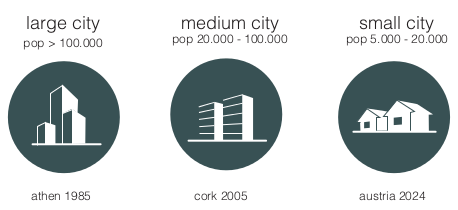 Because of the sheer magnitude of the European Capital of Culture some cities – especially small cities – might be too afraid to apply. The Impulse Strategy helps to structure the components of the ECoC (e.g. cultural program, sustainability, EU-criteria, identity, and so on).
Because of the sheer magnitude of the European Capital of Culture some cities – especially small cities – might be too afraid to apply. The Impulse Strategy helps to structure the components of the ECoC (e.g. cultural program, sustainability, EU-criteria, identity, and so on).
.
In the future it should be possible that rural areas with several smaller cities apply for the ECoC. Establishing a cultural offer for rural areas might save them from shrinking and extinction. Culture is an important factor for a gentle development of cities and could also be used as an engine of development.
.
.
.
Project
The whole process of preparation is structured in 8 different steps. The starting step consists of a workshop and symposium where stakeholders of all interested and participating cities get basic information about hosting the European Capital of Culture. Steps 1 and 2 are there for finding out the status quo of the various cities and the whole region. Step 3 starts with finding out the main interests of the population concerning the cultural program. Afterwards a cultural program will be suggested based on the first 2 analysis steps and with consideration of the input from the population. Steps 4 and 5 are for the preparation of step 6, the cultural period, which is a smaller version of the ECoC. The last step is to evaluate all the different processes that occur during the Impulse Strategy.
.
The whole process will be accompanied by the Impulse Strategy Agency who is a conglomerate of experts of different expertises. The Impulse Strategy Agency can be commissioned by interested cities themselves or by the Federal Ministry of Austria. It´s main goal is to support a city or a region at the implementation of the Impulse Strategy and also at the application for the European Capital of Culture.
.
Start: Information
The start of the Impulse Strategy gives basic information about the European Capital of Culture. The risks and the chances for cities will be explained. Also information about event management and organization of events are given. First of all, the stakeholders of interested cities participate in a symposium to gain general information about the Impulse Strategy and the ECoC. Afterwards the several stakeholders return to their cities to spark the inhabitant´s interests with the process of application for the ECoC.
.
Step 1: analysis – city
The first step of the Impulse Strategy is to investigate the current situation of the city, so that in further steps it is possible to deal with the shown results of the analysis. To guaranty an objective point of view of the city several important categories for hosting the ECoC are given (e.g. accommodation, exhibition space, gastronomy, mobility, and so on). In addition a SWOT-analysis will be created to figure out strengths, weaknesses, opportunities and threats of each city concerning the ECoC.
.
Step 2: analysis – region
The second step of the Impulse Strategy is to investigate the current situation of the region, so that in further steps it is possible to deal with the shown results of the analysis.
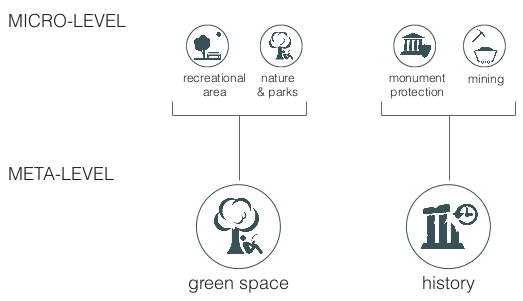 Referring to the SWOT-analysis of the cities (micro-level), a SWOT-analysis for the region (meta-level) will be created. The meta-level helps to find out the characteristics of the region. It´s important to treat the strengths, weaknesses, opportunities and threats the same. The results of the regional SWOT-analysis will be shown in maps. The map below is an example from our cooperation with the project „Kulturpass“. It shows the meta-level-strengths of every single city in the region and its extent considering natural borders. It also gives information about stronger areas in the region. In this region the areas Trzic-Kranj and Klagenfurt are having the most amount of strengths, while the area Radovljica-Kropa is having the least amount of strengths.
Referring to the SWOT-analysis of the cities (micro-level), a SWOT-analysis for the region (meta-level) will be created. The meta-level helps to find out the characteristics of the region. It´s important to treat the strengths, weaknesses, opportunities and threats the same. The results of the regional SWOT-analysis will be shown in maps. The map below is an example from our cooperation with the project „Kulturpass“. It shows the meta-level-strengths of every single city in the region and its extent considering natural borders. It also gives information about stronger areas in the region. In this region the areas Trzic-Kranj and Klagenfurt are having the most amount of strengths, while the area Radovljica-Kropa is having the least amount of strengths.
.
The impact of each city on the region will then be demonstrated in scenarios.
.
Step 3: selection of topics
The third step of the Impulse Strategy is to figure out a range of cultural topics and happenings of the cultural program for the test run_Cultural Period (step 6). To give some help to handle those topics the most frequented categories of cultural programs in the last 6 years are listed (e.g. children & youth, design, film, language, regional events, sports, and so on)
The meta-level of step 2 (analysis region) helps to develop the main pillars of the cultural program. Topics for the cultural program are offered as a basic structure and should reflect the meta-level. To figure out the appropriate program by including the population, several instruments are provided. One is shown in detail:
.
The World Café methodology is a simple, effective and flexible format for hosting large group dialogues. A World Café can be modified to cover a wide variety of needs.
Setting and Preparation:
– create a suitable environment
– prepare questions for the conversation
.
Step 4: ascertainment
 The fourth step of the Impulse Strategy has two purposes. The first one is to check if the cultural program fits to the EU-criteria and the second one is to establish connections of the previous steps and to improve weaker or missing connections.
The fourth step of the Impulse Strategy has two purposes. The first one is to check if the cultural program fits to the EU-criteria and the second one is to establish connections of the previous steps and to improve weaker or missing connections.
The requirements of all planned events are then compared with the current situation of the cities. Some new connections between different functions will be shown. These new connections and cooperation efforts will be listed and marked if they function properly or not. So the outcome of this step will be some sort of checklist.
.
.
Step 5: getting ready
The fifth step of the Impulse Strategy is to prepare the region, the city and the population for the oncoming event. 
The unfulfilled contents of step 4 (ascertainment) have to be adapted. Solutions can be found by building networks with other cities of the region or by building (temporary) infrastructure. Furthermore the inhabitants of the hosting region should be primed for:
– being aware of the different visitors
– learning basic foreign language phrases
– being aware of different cultures having different behaviours
Especially taxi drivers should be well prepared as they can bring information to a huge amount of people.
.
Step 6: test run – cultural period
The Cultural Period is a test run. It is a smaller imitation of the European Capital of Culture to get an impression, what needs to be improved and what is already operating well.
In fact all the other steps are a theoretical approach for preparing the Cultural Period. The Cultural Period is more or less the “practical part” of the strategy. In this step it’s possible to get an idea of how the city and the people will react, if all this tumult is happening.
.
Step 7: evaluation
The seventh step of the Impulse Strategy is to evaluate the functionality of all processes that run during the Strategy.
The Impulse Strategy can be repeated as often as required. It is possible to start at any step that should be improved, based on the data of the evaluation. It also can be seen and used as steady-learning-process for the city or the region. Finally if all processes did work out well, the application for the European Capital of Culture can be started.
Projektplakate
Team
Simon Übleis-Lang (Technische Universität Wien – Architektur)
Verena Wohlmacher (Technische Universität Wien – Architektur)
Mathäus Steurer (Universität für Bodenkultur Wien)
Mu Bo (Universität für Angewandte Kunst Wien – Social Design)

